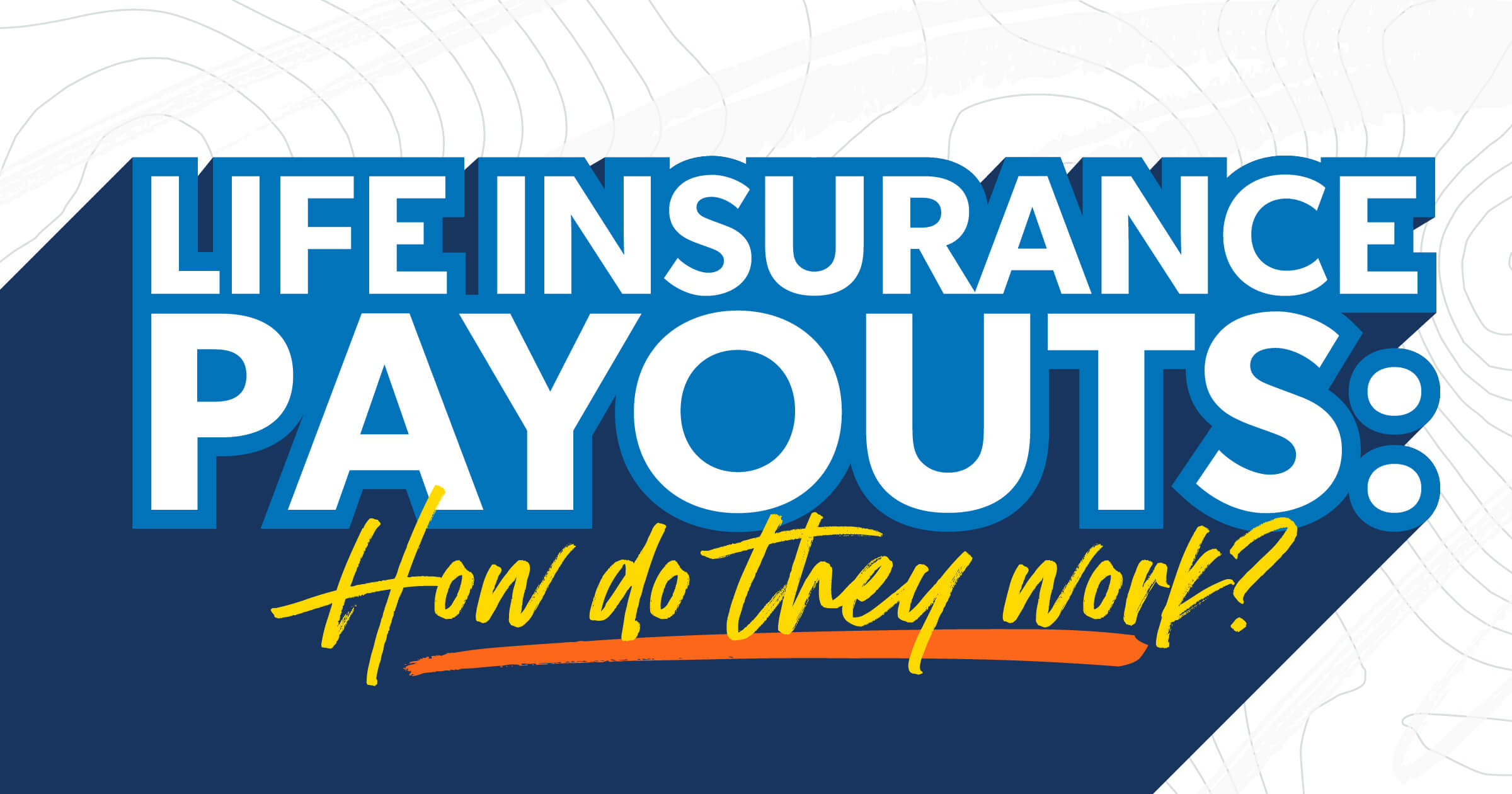Home>Finance>How Long Does It Take For Insurance To Pay Out On A Stolen Vehicle?


Finance
How Long Does It Take For Insurance To Pay Out On A Stolen Vehicle?
Published: November 18, 2023
Curious about insurance payouts for stolen vehicles? Learn how long it typically takes for insurance companies to compensate for a stolen car in our comprehensive finance guide.
(Many of the links in this article redirect to a specific reviewed product. Your purchase of these products through affiliate links helps to generate commission for LiveWell, at no extra cost. Learn more)
Table of Contents
- Introduction
- Factors Affecting the Duration of Insurance Payout on a Stolen Vehicle
- Initial Steps After Reporting a Stolen Vehicle
- Investigation Process by the Insurance Company
- Required Documentation for Insurance Claim
- Determining the Value of the Stolen Vehicle
- Negotiating the Settlement with the Insurance Company
- Time Frame for Insurance Payout
- Additional Considerations for Faster Claims Processing
- Conclusion
Introduction
Having your vehicle stolen can be a distressing experience, and one of the first concerns that may come to mind is how long it will take for your insurance company to pay out on the claim. While the exact timeframe can vary depending on several factors, understanding the process can help manage expectations and ensure a smoother claims process.
When a vehicle is stolen, it is crucial to report the incident to the police and your insurance company as soon as possible. Insurance companies have specific procedures in place to handle stolen vehicle claims, and their aim is to work towards a prompt resolution. However, certain factors can affect the duration of the insurance payout.
In this article, we will explore the different factors that impact the time it takes for an insurance company to pay out on a stolen vehicle claim. We will also discuss the necessary steps to take after reporting the theft, the investigation process undertaken by the insurance company, and the documentation required for the claim. Additionally, we will look at how the value of the stolen vehicle is determined and provide tips for negotiating a fair settlement with the insurance company. Finally, we will outline the typical time frames for insurance payout on a stolen vehicle and offer some strategies to expedite the claims process.
By familiarizing yourself with the process and factors involved in insurance payouts for stolen vehicles, you can better navigate the claims process and have a clearer understanding of what to expect.
Factors Affecting the Duration of Insurance Payout on a Stolen Vehicle
Several factors can influence the length of time it takes for an insurance company to process and pay out a claim for a stolen vehicle. Understanding these factors can help you manage your expectations and potentially expedite the claims process. Let’s explore some of the key factors:
- Investigation Process: The insurance company will conduct an investigation to verify the theft and gather relevant information. This investigation can include reviewing police reports, interviewing witnesses, and analyzing any available evidence. The complexity of the investigation and the amount of supporting evidence can impact the duration of the payout process.
- Policy Coverage and Conditions: The terms and conditions of your insurance policy will determine the coverage provided for stolen vehicles. Different policies may have varying waiting periods and requirements before a claim can be processed. Reviewing your policy and understanding its provisions can provide clarity on what to expect in terms of the payout timeline.
- Documentation: Providing complete and accurate documentation is essential for a smooth claims process. This can include the police report, the vehicle’s registration documents, proof of ownership, and any other requested information. Delay in providing the required documentation can prolong the payout process.
- Vehicle Recovery: If your stolen vehicle is recovered by the police before the claim is processed, it can impact the payout timeline. The insurance company may need to assess the condition of the vehicle and determine the extent of damages before finalizing the claim.
- Settlement Negotiation: The insurance company and the policyholder may need to negotiate the settlement amount for the stolen vehicle. This negotiation process can sometimes take time, particularly if there are disputes regarding the vehicle’s value or the coverage provided by the policy.
It’s important to note that each insurance company may have its own internal processes and timelines for handling stolen vehicle claims. Additionally, external factors such as the volume of claims being processed at any given time can also impact the duration of the payout process.
By being proactive, promptly providing all necessary documentation, and maintaining open communication with your insurance company, you can potentially expedite the claims process and reduce the duration of the insurance payout on your stolen vehicle.
Initial Steps After Reporting a Stolen Vehicle
When your vehicle has been stolen, taking immediate action is crucial to increase the chances of recovery and expedite the insurance claims process. Here are the initial steps you should take after reporting a stolen vehicle:
- Notify the police: The first step is to report the theft to the local law enforcement agency. Provide them with all the necessary information about your vehicle, including the make, model, color, license plate number, and any distinguishing features. The police report will serve as a crucial document for your insurance claim.
- Contact your insurance company: Once you have reported the theft to the police, inform your insurance company immediately. They will guide you through the claims process and provide specific instructions on what documents they require. Be prepared to provide the police report number and any other information requested by the insurance company.
- Secure any supporting documentation: Gather all the relevant documents related to your stolen vehicle, such as the vehicle registration, ownership papers, and any service or maintenance records. These documents will be important in verifying your ownership and providing proof of the vehicle’s value.
- Notify your lender: If you have a loan or lease on the stolen vehicle, promptly inform your lender or leasing company about the theft. They may require specific documentation and could offer guidance on how to proceed.
- Inform the DMV: Contact your local Department of Motor Vehicles (DMV) to report the stolen vehicle. They will update their records accordingly and provide you with any necessary documentation or forms.
- Monitor online platforms: Keep an eye on online platforms, such as social media groups and classified websites, to see if your stolen vehicle is being listed for sale. Inform the police and your insurance company immediately if you come across any suspicious listings.
By promptly taking these initial steps, you can help law enforcement locate your stolen vehicle, provide your insurance company with the necessary information to process your claim, and protect yourself from any potential liability arising from the theft. Remember to document all communications with the police and your insurance company for future reference.
Keep in mind that it’s essential to follow the instructions and guidance provided by your insurance company throughout the claims process. Cooperating fully and being organized can help speed up the process and ensure a smooth resolution to your stolen vehicle claim.
Investigation Process by the Insurance Company
Once you have reported the theft of your vehicle to your insurance company, they will initiate an investigation to assess the validity of your claim. The investigation process is crucial for the insurance company to gather necessary information and determine the appropriate course of action. Here’s what you can expect during the investigation process:
- Review of the police report: The insurance company will carefully review the police report you filed regarding the stolen vehicle. They will analyze the information provided, such as the details of the theft, any witnesses, and the location and time of the incident.
- Interviews and statements: The insurance company may conduct interviews with you, law enforcement officials, and any witnesses to gather additional information about the theft. These interviews can help establish the circumstances surrounding the incident and validate your claim.
- Verification of documents: The insurance company will verify the authenticity of the documents you submitted, including the police report, proof of ownership, and any pertinent records. This process ensures that the claim is valid and accurate.
- Vehicle valuation: The insurance company will assess the value of your stolen vehicle. They may consider factors such as its age, condition, mileage, and any modifications. This valuation helps determine the compensation amount you are entitled to.
- Investigation of potential fraud: Insurance companies have protocols in place to detect and investigate potential fraud cases. They may scrutinize the details of the claim, conduct additional research, and consult with specialized fraud investigators if there are any red flags or inconsistencies.
- Cooperation with law enforcement: The insurance company will often collaborate with law enforcement agencies investigating the theft. They may share information and documentation to aid in the recovery of the stolen vehicle.
The duration of the investigation process can vary depending on the complexity of the case, the availability of information, and the cooperation between the insurance company, law enforcement, and the policyholder. It’s important to respond to any communication from the insurance company promptly and provide them with any additional information or documentation requested.
Once the investigation is complete, the insurance company will proceed with evaluating your claim and determining the appropriate payout amount. They will then communicate their decision to you and initiate the next steps in the claims process.
Remember to maintain open communication with your insurance company throughout the investigation process. Providing accurate and detailed information promptly can help expedite the resolution of your stolen vehicle claim.
Required Documentation for Insurance Claim
When filing an insurance claim for a stolen vehicle, it is important to provide the insurance company with the necessary documentation to support your claim. The required documentation may vary slightly depending on your insurance provider, but generally, you will need to submit the following:
- Police report: The first and most critical document is the police report. This report verifies the theft and provides important details, such as the date, time, and location of the incident. Make sure to obtain a copy of the police report and provide it to your insurance company.
- Proof of ownership: To establish your ownership of the stolen vehicle, provide documents such as the vehicle title, registration certificate, or bill of sale. These documents must contain your name, indicating that you are the rightful owner of the vehicle.
- Vehicle information: Include any documentation related to the stolen vehicle’s make, model, year, VIN (Vehicle Identification Number), and license plates. This information helps the insurance company identify the specific vehicle involved in the theft.
- Keys: Provide any available keys to the stolen vehicle. This can help eliminate any doubts about the possibility of the vehicle being misplaced rather than stolen.
- Finance or lease documents: If your stolen vehicle was financed or leased, provide documentation that outlines the terms of the finance or lease agreement. This includes information about the lender or leasing company, the loan or lease contract, and any relevant contact information.
- Additional supporting evidence: Include any other documentation that can support your claim, such as photographs of the stolen vehicle, receipts for any recent repairs or maintenance, and any applicable warranties or service contracts.
It is important to submit all the required documentation promptly to avoid any delays in the claims process. Keep copies of all documents provided to the insurance company for your records.
If you are unsure about the specific documentation required, contact your insurance company directly and ask for clarification. They can provide you with a list of the required documents and guide you through the claims process.
Remember, providing complete and accurate documentation is crucial for the successful processing of your stolen vehicle claim. By organizing the necessary documents and promptly submitting them to your insurance company, you can facilitate a smoother claims process and expedite the resolution of your claim.
Determining the Value of the Stolen Vehicle
When filing an insurance claim for a stolen vehicle, one of the crucial factors is determining the value of the vehicle at the time of the theft. The valuation process helps establish the appropriate amount of compensation you are entitled to. The insurance company typically employs the following methods to assess the value:
- Market value: The insurance company may consider the current market value of similar make, model, and year vehicles in your area. They may use industry guides, online databases, or consult with experts to determine the average market value.
- Vehicle condition: The condition of your stolen vehicle at the time of theft is also taken into account. The insurance adjuster evaluates factors such as mileage, wear and tear, and any pre-existing damage to determine its impact on the value.
- Vehicle features and upgrades: Any additional features, accessories, or aftermarket upgrades installed in your stolen vehicle may affect its value. These include things like custom rims, upgraded sound systems, or added safety features. Providing documentation and receipts for these modifications can help justify a higher valuation.
- Depreciation: Depreciation is a consideration in determining the value of a stolen vehicle, as most vehicles lose value over time. The insurance company may use industry-standard depreciation tables or formulas to calculate the depreciated value of your vehicle based on its age and mileage.
- Comparable sales: The insurance company may also look for recent sales records of similar stolen vehicles in your area. This helps validate the market value and ensure an accurate assessment.
It is important to note that insurance companies typically do not provide a reimbursement equal to the original purchase price of the vehicle. Instead, they base the payout on the estimated actual cash value (ACV) of the vehicle at the time of the theft.
To support your claim for the value of the stolen vehicle, it is helpful to provide any documentation you have that highlights its value, such as recent appraisals, maintenance records, or receipts for upgrades. This can assist in justifying a fair valuation with the insurance company.
If you disagree with the valuation provided by the insurance company, you have the right to negotiate. Present any evidence or expert opinions that support your case for a higher valuation. It may be beneficial to consult with an independent appraiser or seek legal advice if necessary.
By understanding how the value of your stolen vehicle is determined and providing the necessary documentation, you can better advocate for a fair and accurate valuation from your insurance company.
Negotiating the Settlement with the Insurance Company
When it comes to settling an insurance claim for a stolen vehicle, it is important to remember that the initial settlement offer from the insurance company is not always final. You have the right to negotiate and strive for a fair and satisfactory settlement. Here are some tips for negotiating with the insurance company:
- Do your research: Before entering into negotiations, gather as much information as possible about the value of your stolen vehicle. Research online resources, such as vehicle valuation websites or classified ads, to determine the market value of similar vehicles in your area. This knowledge will give you a foundation for your negotiation.
- Document your case: Prepare a well-documented case to support your negotiation. This can include providing receipts for recent repairs or maintenance, documentation of aftermarket upgrades or features, and any other evidence that can justify a higher valuation. Strong supporting documentation strengthens your negotiation position.
- Be persistent and assertive: Approach negotiations with confidence and assertiveness. Clearly articulate your position and provide supporting evidence to demonstrate that the initial settlement offer is insufficient. Be persistent in pursuing a fair resolution, and do not hesitate to ask for justification or clarification of the offer.
- Engage in open and honest communication: Maintain open and honest communication with the insurance adjuster. Clearly express your concerns, ask questions, and provide any additional information that might help them understand your perspective. Keeping the lines of communication open can facilitate a smoother negotiation process.
- Consider professional assistance: If negotiations are not progressing as desired, you may consider seeking assistance from a professional, such as a public adjuster or an attorney experienced in insurance claims. They can provide guidance, advocate for your rights, and help navigate the negotiation process on your behalf.
- Know your policy: Familiarize yourself with the terms and conditions of your insurance policy. Understand the coverage limits, deductibles, and any exclusions that may apply. This knowledge will empower you to negotiate within the boundaries of your policy and make informed decisions.
Remember, negotiating a fair settlement requires persistence, preparation, and effective communication. Be patient and willing to engage in a back-and-forth dialogue with the insurance company. The goal is to reach a mutually agreeable resolution that adequately compensates you for the loss of your stolen vehicle.
If negotiations reach an impasse or if you feel the insurance company is being unreasonable, you may need to escalate the matter. This can involve filing a complaint with the insurance company’s management or seeking assistance from your state’s insurance regulatory authority.
By approaching the negotiation process strategically and advocating for your rights, you can increase the likelihood of achieving a fair settlement that accurately reflects the value of your stolen vehicle.
Time Frame for Insurance Payout
The time it takes for an insurance company to process and pay out a claim for a stolen vehicle can vary based on several factors. While each case is unique, there are general time frames to consider during the claims process:
Initial response: After reporting the theft to your insurance company, you can expect an initial response within a few days. At this stage, they may request additional documentation or information to proceed with the investigation.
Investigation period: The investigation process can take anywhere from a few days to several weeks, depending on the complexity of the case. The insurance company will review the police report, conduct interviews, and verify documentation to validate the claim. During this time, it is important to cooperate and promptly provide any requested information to minimize delays.
Claim evaluation: Once the investigation is complete, the insurance company will evaluate the claim and determine the appropriate payout amount. This evaluation process may take anywhere from a few days to a couple of weeks. The insurance adjuster will consider factors such as the vehicle’s value, policy coverage, and any applicable deductibles.
Settlement negotiation: If there is disagreement about the settlement amount, the negotiation process can extend the timeline. Negotiating with the insurance company may take days or weeks, depending on the complexity of the discussions and the willingness of both parties to reach a mutually agreeable resolution.
Finalizing and issuing the payout: Once a settlement agreement has been reached, the insurance company will finalize the claim and issue the payout. This step usually takes a few days to process the paperwork and arrange for payment. It may be in the form of a check or direct deposit, depending on your preferences and the insurance company’s procedures.
In total, the entire process from reporting the stolen vehicle to receiving the insurance payout can range from a few weeks to a couple of months. The duration can vary due to factors such as the complexity of the case, the availability of information, and the speed of communication between all parties involved.
It’s important to note that these time frames are estimates, and unforeseen circumstances or delays can extend the process. Staying in regular contact with your insurance company, promptly providing requested information, and being proactive in following up can help expedite the claims process.
If you have concerns about the timeline or require updates on the status of your claim, don’t hesitate to reach out to your insurance company’s claims department. They can provide you with specific information regarding the progress of your claim and address any questions or concerns you may have.
Additional Considerations for Faster Claims Processing
While the timeline for insurance payout on a stolen vehicle claim is primarily dependent on the insurance company’s internal processes, there are certain steps you can take to potentially expedite the claims process. Consider the following tips for faster claims processing:
- Prompt reporting: Report the theft of your vehicle to the police and your insurance company immediately. Quick action can initiate the claims process sooner, allowing the insurance company to begin their investigation promptly.
- Provide complete and accurate information: Ensure that you provide all required information and documentation accurately and promptly. This includes the police report, vehicle registration documents, proof of ownership, and any additional requested information. Any delays in providing the necessary information can hinder the progress of your claim.
- Cooperate fully: Cooperate fully with the insurance company’s investigation. Respond promptly to any inquiries and provide any additional information or documentation requested. This will help expedite the investigation process and prevent unnecessary delays.
- Maintain open communication: Stay in regular communication with your insurance company. Return phone calls, respond to emails, and follow up on any outstanding requests. By maintaining open lines of communication, you can stay informed about the progress of your claim and address any concerns or issues promptly.
- Be organized: Keep all documentation related to your stolen vehicle claim in one place. Create a file or folder to store police reports, insurance correspondence, and any other relevant information. This organization will make it easier for you to locate and provide requested documents when needed.
- Consider using online tools: Some insurance companies offer online platforms or mobile apps that streamline the claims process. These tools allow you to submit documentation, track the progress of your claim, and communicate with the insurance company easily. Utilizing these tools can help expedite the process and reduce administrative delays.
- Follow up regularly: If you feel that there is a delay or lack of progress in your claim, don’t hesitate to follow up with your insurance company. Politely inquire about the status of your claim and ask for an estimated timeline for resolution. This proactive approach can help prioritize your claim and minimize any unnecessary delays.
While implementing these tips does not guarantee an immediate or accelerated claims process, it can increase your chances of a smoother and faster resolution. Remember, each claim is unique, and the specific circumstances can influence the timeline. It’s important to be patient and persistent while working with your insurance company to ensure a fair and timely outcome.
Conclusion
When your vehicle is stolen, navigating the insurance claims process can be stressful and time-consuming. However, understanding the factors that affect the duration of insurance payout can help you manage your expectations and make the process smoother. By taking the right steps and being prepared, you can potentially expedite the resolution of your stolen vehicle claim.
From promptly reporting the theft to providing the necessary documentation, cooperating with the insurance company’s investigation, and negotiating a fair settlement, each stage of the claims process plays a crucial role in determining the time it takes for the insurance company to pay out on your stolen vehicle claim.
While timelines can vary based on the complexity of the case, the availability of information, and other factors, being proactive, organized, and responsive can help speed up the process. Effective communication and documentation are key, as they demonstrate your commitment to providing accurate and timely information to support your claim.
Remember to familiarize yourself with your insurance policy to understand your coverage and rights in relation to stolen vehicles. This knowledge will empower you to advocate for a fair settlement and navigate the negotiation process effectively.
It’s important to stay informed and maintain open lines of communication with your insurance company throughout the claims process. Regular follow-ups and polite inquiries can help ensure that your claim is progressing as expected and prompt any necessary actions or updates.
While it can be a challenging experience to have your vehicle stolen, by being proactive, patient, and persistent, you can work towards a resolution that offers the appropriate compensation for your loss. Collaborating with your insurance company, providing the required documentation promptly, and understanding the process will contribute to a smoother and more efficient claims experience.
Ultimately, with proper preparation and engagement, you can navigate the insurance payout process for a stolen vehicle with greater ease and increase the likelihood of a favorable outcome.














